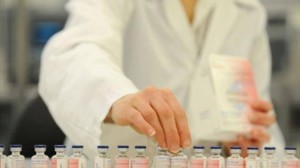 Scientists in Australia have revealed that they could be on the verge of an exciting development in reversing Type 2 diabetes. The researchers’ discovery involves a specific gene and its disruption of insulin production in the pancreas in response to high-fat diets. The results of the study were published in the journal “Diabetes.”
Scientists in Australia have revealed that they could be on the verge of an exciting development in reversing Type 2 diabetes. The researchers’ discovery involves a specific gene and its disruption of insulin production in the pancreas in response to high-fat diets. The results of the study were published in the journal “Diabetes.”
Over 700,000 Australians have been diagnosed with Type 2 diabetes. There is currently no cure for the disease; caused by a variety of hereditary and environmental factors, including lack of exercise, poor diet, and obesity, Type 2 diabetes most commonly affects older individuals. The disease impairs the ability of the beta cells in the pancreas to produce insulin, which removes sugar from the blood stream and transports it to cells to be used as energy.
In those who follow a healthy diet and exercise regularly, the gene being studied by the Australian researchers — known as ld1 — generally does not activate, and so insulin production is not impaired. However, according to the researchers, a high-fat diet activates the gene and disrupts insulin production in the beta cells of the pancreas. Conducting their research at the Diabetes and Obesity Research Program at the Garvan Institute of Medical Research in Sydney, Australia, the research team based its findings on experiments conducted with mice and cell cultures.
Next on the research team’s agenda is to test whether medications might be developed to prevent the ld1 gene from activating and disrupting insulin production. Dr. Ross Laybutt with the Garvan Institute described how medications that target the gene could be used to reverse Type 2 diabetes. “The drugs could help the beta cells continue to produce insulin and protect them from the effects of a high-fat diet,” said Dr. Laybutt. “So even when you were having this high-fat diet your beta cells would be protected against the normal deterioration that occurs. That’s the potential. You wouldn’t have diabetes anymore because it only occurs when the beta cells fail to secrete enough insulin.”
The research team found that high-fat diets caused the ld1 gene to activate in the lab mice, which triggered the onset of Type 2 diabetes. However, when the mice were fed the same high-fat diets but the researchers blocked their ld1 genes, the mice did not develop diabetes. Additional research showed that pancreatic tissue from patients with diabetes contains increase levels of ld1; the gene is also known to promote the growth of cancerous cells.
Although the genetic relationships that cause diabetes are complex, Dr. Laybutt commented that ld1 seems to be the gene that begins the onset of diabetes by controlling other genes. “This gene is a master regulator of the other genes that make the beta cells work properly… When ld1 switches on it directly affects other genes which confer the ability of the beta cells to secrete insulin. Fat in the diet also switches on the gene as well as high glucose and stress too,” he said.
Dr. Laybutt cautioned that it will likely be years before a medication could be developed based on the findings. “It would be a five to 10 year process. Establishing the clinical benefits of a drug and the safety of drugs takes a lot of time. It would be in that sort of time frame before there would be a marketable drug for Type 2 diabetes to target this gene.”